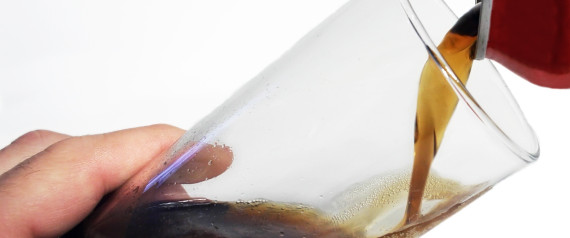As Sugary Drink Intake Decreases, Health Markers Improve

Cutting down on sugary sodas and energy drinks may not only help you stick to your calorie goal; it also might help reduce your disease risk as well.
A recent study found that American adults have been drinking fewer sugar beverages in the past few years.
This study showed that some health markers, such as cholesterol levels, improved as sugar-sweetened drink intake decreased.
Kerrie Hert, LRD, of the Department of Health, Nutrition and Exercise Sciences at North Dakota State University, led this study on sugar-sweetened drinks and disease risk.
Sugary beverages include sodas, sweetened juices, energy drinks and other drinks with added sugars.
According to the authors of this study, consumption of sugar-sweetened drinks rose from the late 1970s to the early 1990s. During that same time period, US adults were more likely to become obese or overweight.
These authors wrote that recent data has shown that consumption of sugary drinks has started to decline in recent years.
Sugary beverages contribute to calorie consumption without providing necessary nutrients. As a result, sweet drinks can lead to weight gain if consumers do not decrease consumption of other foods or exercise more.
Weight gain and Obesity can increase the risk of chronic diseases like Diabetes and heart disease.
For this study, the researchers used data from the National Health and Nutrition Examination Survey (NHANES) from 1999 to 2010 to see if trends in sugary beverage consumption corresponded to trends in chronic disease levels.
These researchers gathered information from NHANES participants on their sugary beverage intake, calorie intake, weight, age, gender, race, smoking status, blood pressure, cholesterol levels and other health information.
They followed up with the participants, about 7,000 American adults, for 12 years.
The researchers found that this group of adults began to drink fewer sugary drinks toward the end of the survey period. Additionally, markers of chronic disease began to improve.
There were no significant differences in the prevalence of diseases. However, health markers like high blood pressure were less common as sugary drink consumption declined.
Participants whose sugary beverage intake accounted for 5 percent or more of their total caloric intake were significantly more likely to have low levels of HDL — the “good cholesterol” that helps flush out “bad cholesterol.”
The researchers suggested that sugary beverages have been less popular due to trends in purchasing foods and drinks containing noncaloric sweeteners.
These researchers noted that their study did have some weaknesses, so direct causality between sugary drinks and disease markers cannot be proven. They called for future research on intake of sugar-sweetened beverages and chronic disease.
This study was published in Nutrition Research on November 14.
The researchers were supported by North Dakota State University and did not disclose any conflicts of interest.